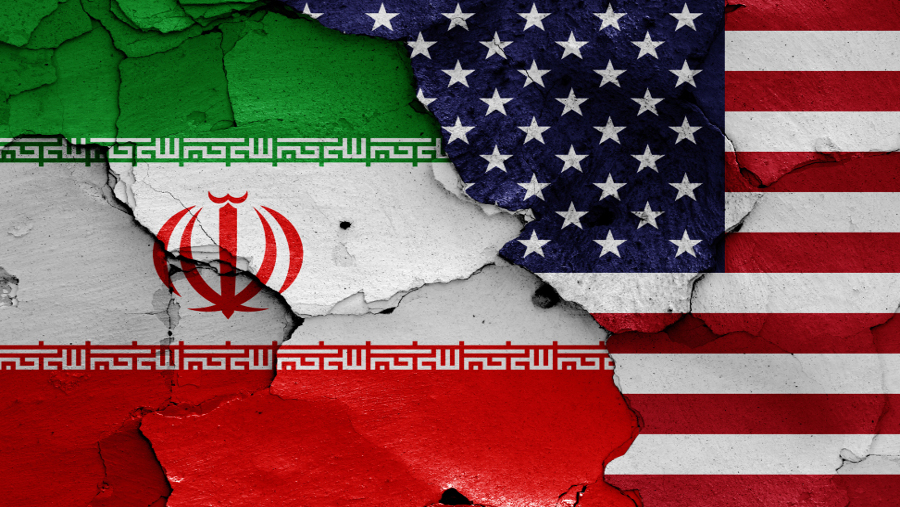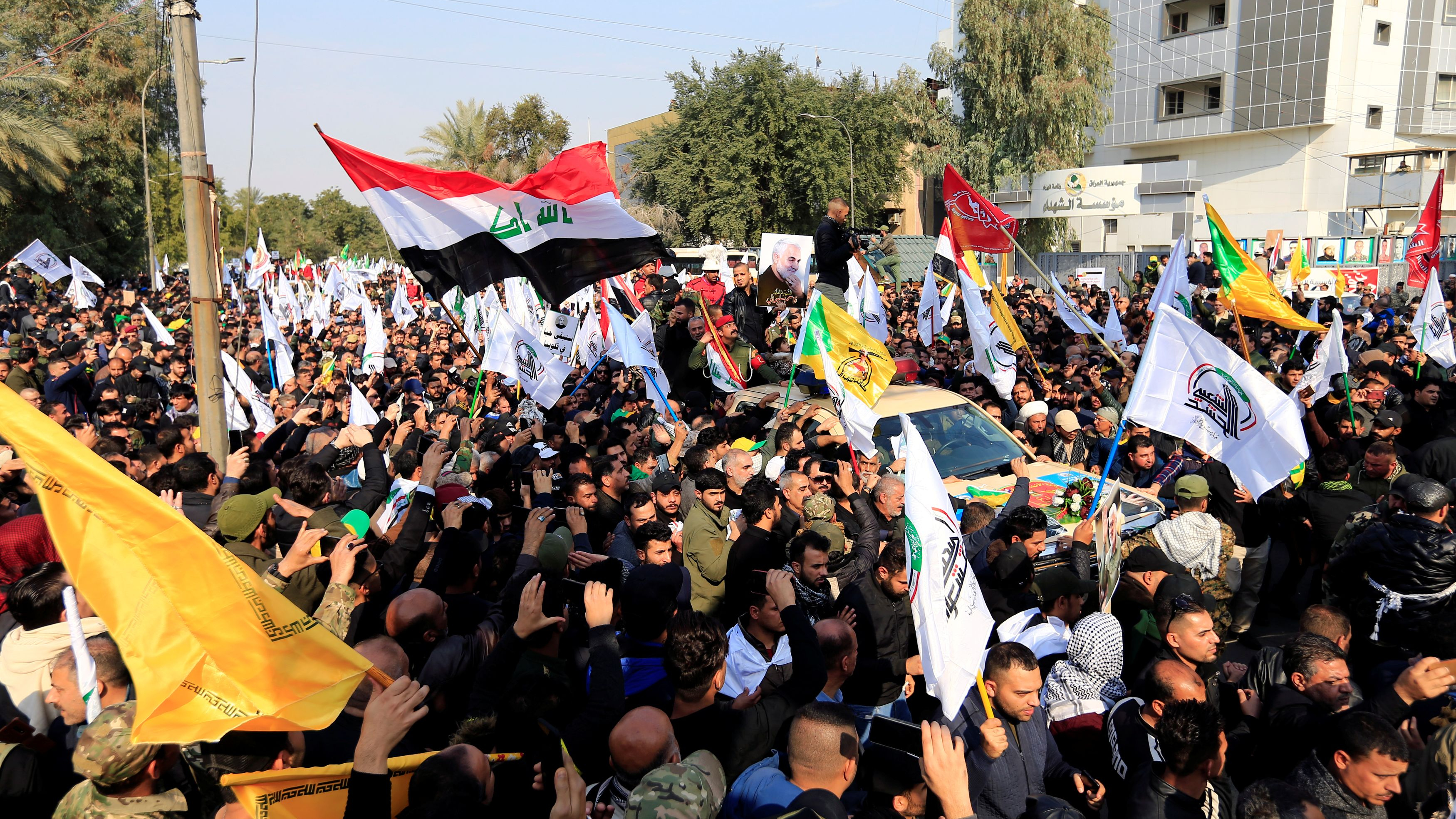
Editor's note: Djoomart Otorbaev is the former prime minister of the Kyrgyz Republic, a non-resident senior fellow of the Chongyang Institute for Financial Studies, Renmin University of China, and a member of Nizami Ganjavi International Center. The article reflects the author's views and not necessarily those of CGTN.
The war of words over the Iranian nuclear deal has reached its climax. This week, U.S. President Joe Biden and Iran's Supreme Leader Ayatollah Ali Khamenei made new sharp statements. At the same time, both Iran and the United States are aware of the need to restore, in one form or another, the Joint Comprehensive Plan of Action (JCPOA).
Iran needs to lift full or even partial international sanctions to resume the export of their hydrocarbons and return to the world financial system. For the U.S., it is essential to block Iran's path to possession of nuclear weapons.
The question now is not whether the return to negotiations will take place, but when it will take place. It appears that high-level diplomatic maneuvering is underway. None of the parties is ready to "lose face" by asking to start negotiations first. There are apparent risks on the way to beginning negotiations.
The most logical and effective rapprochement method between the parties' implacable positions could be their informal contacts, just like at the early stage of the previous treaty 10 years ago. Naturally, the easiest and fastest way would be to do this through direct negotiations. However, if necessary, the parties may agree to involve influential intermediaries in this process. Such a moment may come soon since forming Biden's foreign policy team has now been completed.
A key factor increasing the chance of positive development was the recent appointment of William Burns as director of the Central Intelligence Agency (CIA). This experienced and influential American politician is well versed in Middle East politics, having worked in the region for a long time.
He was responsible for these countries' relations for many years, serving in key positions at the State Department. It is of fundamental importance that he has personal contact with many leaders of the region's countries. He deeply understands both the area and the peculiarities of Iran's domestic and foreign policy.
A few issues can either contribute to or hinder the positive development of events.
The Biden administration is currently actively trying to show that the Donald Trump years were a disaster in domestic and foreign policy. Therefore, abandoning the previous administration's policy on the nuclear deal with Iran would be quite logical. Joe Biden served as vice president under Barack Obama, who made the nuclear deal. The new president has repeatedly stated that he considers Donald Trump's actions toward Iran wrong and expressed his intention to return his country to the agreement, but only if Tehran takes the first step.
An additional incentive to return to the deal would have the support of Washington's European partners – member countries of the previous agreement – Germany, France and the UK. After all, Biden clearly outlined the improvement of relations with his strategic allies among his main priorities.
On obstacles to negotiations, important Middle Eastern players such as Israel, Saudi Arabia and the United Arab Emirates (UAE) are actively discouraging a return to the talks. Using the recent restoration of diplomatic relations with the UAE and Bahrain and the warming of ties with Saudi Arabia, Israel is trying hard to broaden and strengthen the Middle East's anti-Iranian bloc.

Iranian mourners gather for the funeral of the country's elite Qud Bridage commander Qasem Soleimani, killed in a U.S. drone strike on January 3, 2020. /Reuters
Iranian mourners gather for the funeral of the country's elite Qud Bridage commander Qasem Soleimani, killed in a U.S. drone strike on January 3, 2020. /Reuters
For all the importance of American domestic and foreign policy problems, facilitating or hindering a return to the deal, the presence of the most severe domestic Iranian issues seems to be the most difficult.
Aggressive anti-Iranian actions carried out by the Trump administration, such as the assassination of Iranian Major General Qassem Soleimani and harsh economic sanctions, have increased the role of the conservative anti-American wing in the Iranian political establishment.
Arguing against the deal's resumption, the Conservatives now emphasize that it was the American side that first violated its obligations. As a result, the Iranian parliament, controlled by the Conservatives, last December forced the liberal government of Iranian President Hassan Rouhani to step up work in all areas of the country's nuclear program. Iran has now reached 20 percent uranium enrichment, more than five times the nuclear deal level.
Thus, Tehran's latest decision was the most severe violation of the terms of the nuclear deal. Also, the storage limit for low-enriched uranium and heavy water has exceeded, the number of modern centrifuges has increased, and work on metallic uranium has begun. Additionally, the forthcoming limitation of the monitoring work of the International Atomic Energy Agency inspectors has been announced.
Even the likelihood of a resumption of negotiations will meet with strong resistance from Iran's reinforced conservative circles. The propaganda machine actively supports the conservatives, claiming that its economy, especially its non-resource sectors, is actively developing. The country is finding channels for selling Iranian oil, and the nation is consolidated in its struggle against the "American devil."
The time factor is now more critical than ever. The presidential elections in the country will take place in June. Many analysts are confident that the Conservatives will win the election with a clear advantage. The chances of rebuilding the JCPOA before June are slim, but rebuilding the deal after the elections will be even more difficult.
Despite the right conditions, indicating the apparent chance of starting negotiations on a nuclear deal, both countries' political problems could disrupt their start. And the longer verbal battles and "marking time" continue, the more likely the process's final disruption will become. It will be an awful development for the whole world.
(If you want to contribute and have specific expertise, please contact us at opinions@cgtn.com.)

